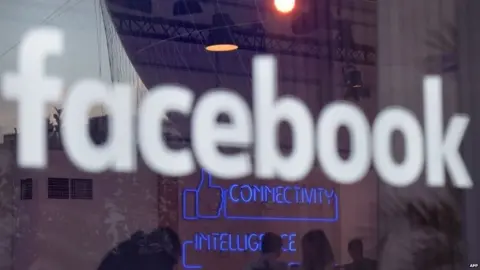Facebook to reconsider claims of Russian interference in Brexit vote
 AFP
AFPFacebook is to re-examine whether Russian groups used its social media accounts to try to influence the outcome of the Brexit referendum.
The tech giant found "a minimal amount" of UK-related activity when it looked into one particular group last year.
But after a request from MPs, it will investigate whether there was "co-ordinated activity" by other outfits.
Theresa May has accused the Russian authorities of meddling in foreign elections and spreading disinformation.
In a speech in November, she said Russia's attempts to "sow discord" in the West could not go unchallenged and warned President Vladimir Putin: "We know what you are up to."
'Historic data'
Following a request by the Electoral Commission last year, Facebook Ireland looked into whether an organisation known as the Internet Research Group had used its platforms to spread disinformation during the Brexit vote.
Facebook told the BBC last month that it believed the group's output amounted to just three UK-related adverts which had reached no more than 200 UK-based viewers over four days.
But MPs pressed for further action and in a letter to Conservative MP Damian Collins, Facebook's UK policy director, Simon Milner, said it would now cast its net wider by looking at other potentially suspicious "clusters".
"We have considered your request and can confirm our investigatory team is now looking to see if we can identify other similar clusters engaged in co-ordinated activity around the Brexit referendum that was not identified previously," he wrote.
"This work requires detailed analysis of historic data by our security experts...
"We are committed to making all reasonable efforts to establish whether or not there was co-ordinated activity similar to that which was found in the US."
Facebook has asked Mr Collins, who chairs the Commons Culture, Media, Digital and Sport Committee, whether he can provide intelligence which may provide evidence of "illegal" online activity of the kind that the US authorities have said occurred during the 2016 Presidential election.
Mr Collins welcomed the fresh action by the social media giant.
Allow X content?
In January, the US director of national intelligence identified the Internet Research Group as a vehicle for spreading misinformation.
But Foreign Secretary Boris Johnson said recently he had not seen any evidence that Russia sought to interfere in the 2016 referendum - about which the Kremlin has insisted it remained neutral.